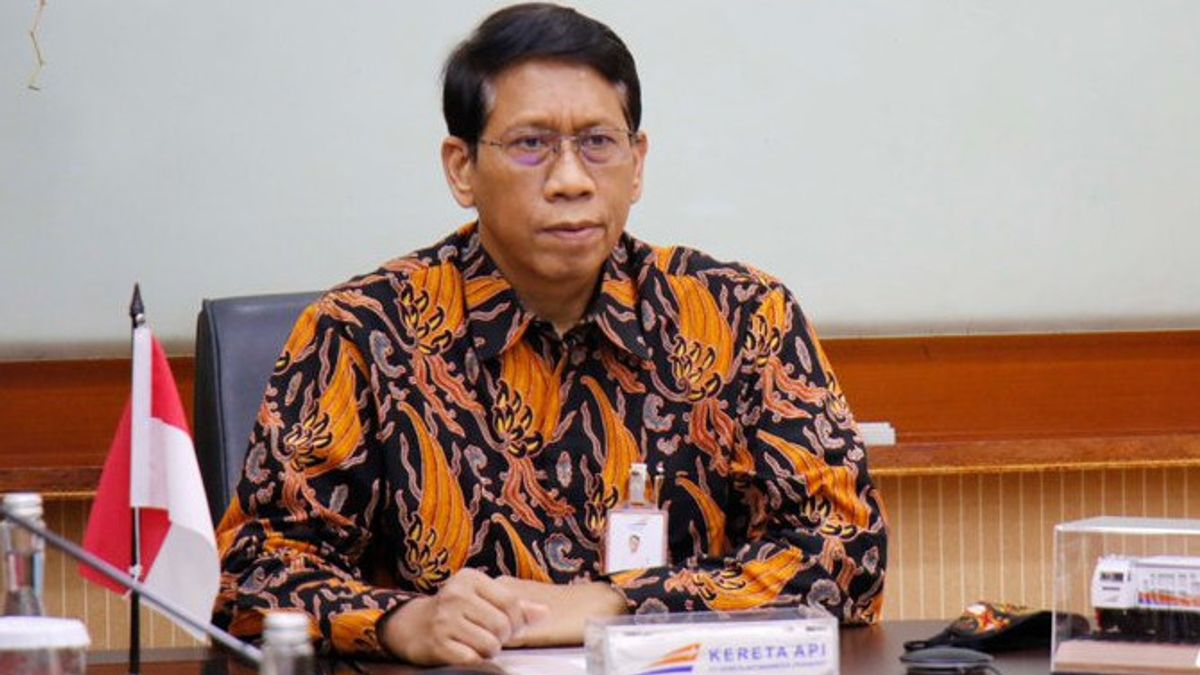JAKARTA - The COVID-19 pandemic has put pressure on the transportation sector. Even though the transitional PSBB has been implemented, this does not necessarily make conditions in this sector return to normal. PT Kereta Api Indonesia (Persero) predicts that it will suffer losses until the end of the year, if the pandemic does not last.
President Director of PT Kereta Api Indonesia (KAI), Didiek Hartantyo, said that from the cash flow component, after efficiency, the company would cut operating costs by up to 40 percent, so that the end of the year operational cash was negative at Rp3.48 trillion.
Didiek explained that the company's cash pressure was due to limited operations in the era of the COVID-19 pandemic. In addition, in limited operations, management must apply the principle of guarding distance. This policy results in a decrease in passenger seat occupancy.
Furthermore, Didiek explained, this condition was reflected in the company's daily income which fell drastically to minus 87 percent compared to the average daily income under normal conditions, which was from IDR 23 billion per day to only IDR 3 billion per day in May.
"For volume, the decline occurred by 78 percent from an average of 1.1 million passengers per day under normal conditions to only 239 thousand passengers per day at the end of May 2020," he said, during a hearing with Commission VI, Wednesday, July 8. .
Didiek said, for June, his party projected an operating cash of minus IDR 574 billion. Then, July minus IDR 601 billion, and August minus IDR 487 billion. Furthermore, for September it will still be negative at IDR490 billion and for October minus IDR234 billion.
However, Didiek predicts, in November, revenue would turn around positive by Rp. 52 billion and back to negative by Rp. 18 billion in December. Based on management calculations, KAI requires funding of IDR 3.5 trillion to maintain company liquidity.
Prevent layoffsDidiek said, of the total funds of IDR 3.5 trillion, IDR 1.25 trillion will be allocated for employee costs. He said that the decreasing income made this bailout very important.
Furthermore, Didiek said, this bailout could help the company retain all KAI and group employees. Because, in the midst of the COVID-19 pandemic, KAI does not want to terminate employment (PHK).
Currently, the number of employees working at PT KAI and the group is around 46 thousand people. As for the details, the parent company reached 30 thousand, while the total employees in the six subsidiaries amounted to 16 thousand.
"We will not take layoffs and no salary cuts. So we need liquidity of around IDR 1.25 trillion to finance these employees," he said.
The English, Chinese, Japanese, Arabic, and French versions are automatically generated by the AI. So there may still be inaccuracies in translating, please always see Indonesian as our main language. (system supported by DigitalSiber.id)









